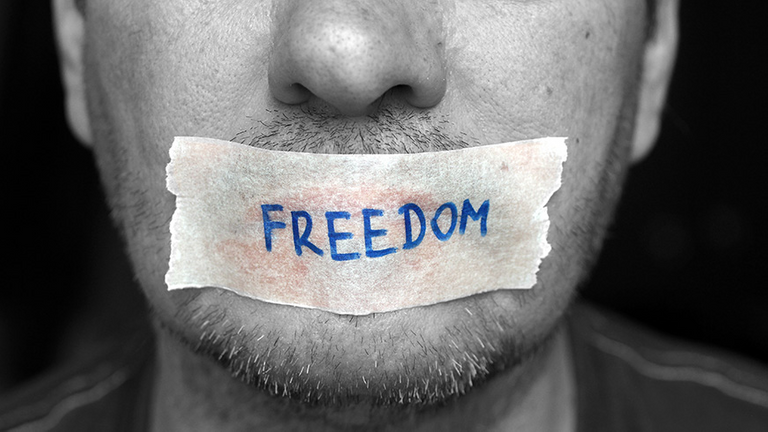
Both the far left and the far right seem to be making the same mistakes when it comes to the issue of social media censorship.
First of all, both seem to be falling into the same trap of conflating free speech and the First Amendment. I've been talking about the differences for a long time. If you still don't get it, that's on you.
The far left particularly, however, make the mistake of the comparison between social media censorship and the right of private businesses to deny service.
First of all, the problem is the assumption that everybody who has a problem with social media censorship is being hypocritical by demanding that bakers not be compelled to cater gay weddings. That's not true of everybody and there's an important nuance to that which is being overlooked. The bigger problem is that the people who are yelling "Hypocrite!" are being hypocritical by defending the right of disassociation and to refuse service of social media companies while demanding that bakers, photographers, and pizza parlors be legally compelled to associate and provide service.
The most important point to me though is that the people who more or less take my philosophical view on this are being consistent while being viewed as hypocrites because people are putting words in our mouths. This is mostly because people think that the state should get involved in every facet of ethics and I don't.
I've been vocally critical of traditional social media's policies and how they've enacted them. This isn't just your twitters and facebooks. I was preparing a lecture at my job in DC critical of our speech codes while having free speech as a major issue area. So, yeah, I'm critical of Facebook, Twitter, and a few other companies that I've encountered over their speech issues and terms of service agreements.
At no point have I ever said that the government should get involved and compel these companies to associate with anybody. I certainly don't want major tech companies to be nationalized so they'll be bound by the First Amendment.
On the flip side, I want the government to stop compelling association when it comes to bakers. I think that they should have a right to disassociate.
I also never said that bakers should be free of criticism or that anybody has a right to their labor and resources. I never said that because I don't believe it.
Take this as a purely ethical issue and forget the existing laws for a second.
The differences between socal media companies and a local baker should be clear; and, I would argue that there are big ethical implications.
Socal media companies are open platforms. It's easy for people to not see things that they don't want to see even if it exists on the platform. If I don't want. Just like most of my closer friends, I make it a point to follow pages and people with views I find reprehensible because I think that I need to hear it from the people who actually believe what they're saying. Nobody has to treat social media that way. You can hide, mute or even block me (or anything for that matter) at any time. It's not terribly hard to create an echo chamber. We can have parental blockers on cable, it's not hard to shield yourself from profanity, nudity, violence, or ideas you don't like. What you're supporting by taking the tech companies' side here is supporting a few rich gatekeepers deciding what can be seen or heard by everyone else.
What's more, although there technically are alternatives to traditional social media, there really aren't. A lot of young journalists live or die on Twitter and it's not like they can just find another platform if they happen to say that Twitter doesn't like. Instagram is another important platform that I've had friends banned from on numerous occasions simply because of how bad they are at enforcing the terms and conditions and not for violating them. But, really, especially when it comes to journalists, are you going to tell me that you want a private tech giant determining what is acceptable speech? Do you trust them?
The issue with bakers is entirely different. In fact, I'd argue that it's one of the most egregious violations of the First Amendment that has happened in the last several decades because it's compelled expression. It is every bit as important to demand that people not be compelled to say or do something that they believe is wrong as it is to not prevent people from saying what they think is right.
This really should be the basics of the ethics behind free expression and right of association. I guess it's not.